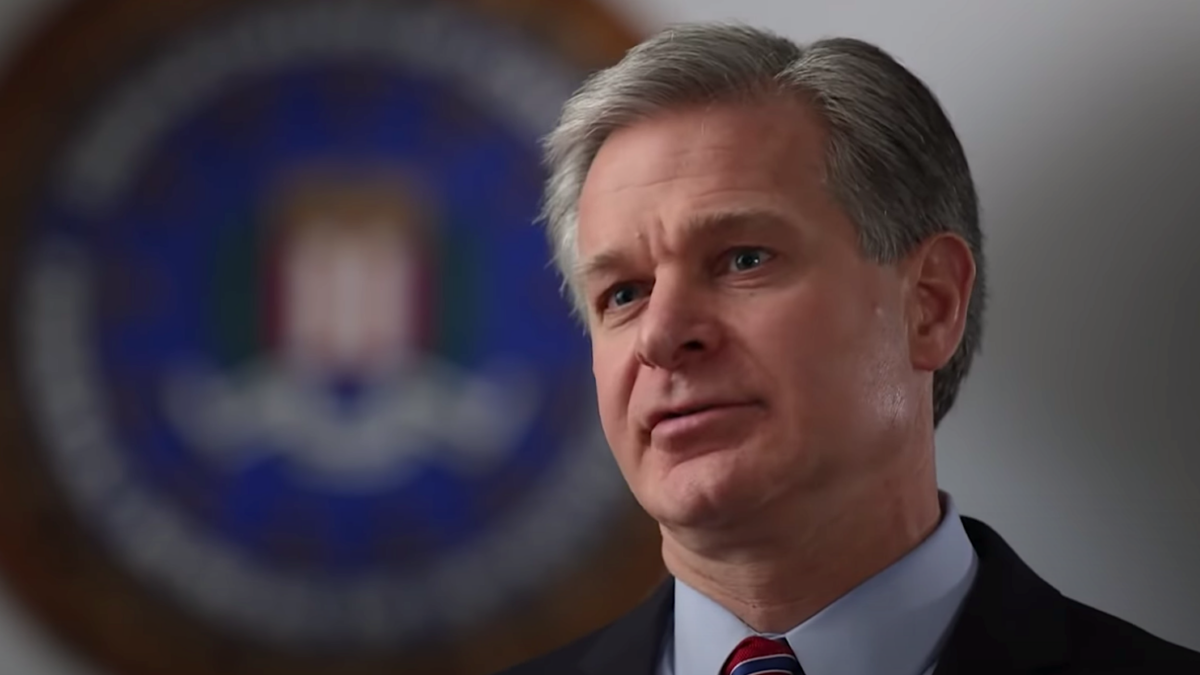Ordering the unsealing of the Mar-a-Lago search warrant affidavit would be wrong as a matter of law. But as a matter of lessons learned, Americans can infer that the unprecedented search of former President Donald Trump’s home rested on circular reporting, material omissions, misleading assertions, informants of unproven reliability, and an investigation undertaken by partisan agents.
Federal Magistrate Judge Bruce Reinhart will hear oral arguments Thursday afternoon on the media’s motions to unseal the Trump search warrant materials. The Department of Justice, with Trump’s consent, already released the search warrant and the corresponding attachments: Attachment A, which described the places to be searched, and Attachment B, which identified things to be seized. The government also released a redacted Property Receipt list.
The Biden administration opposes, however, unsealing the affidavit filed in support of the search of Trump’s home, arguing that “the search warrant presents a very different set of considerations,” and that there are “compelling reasons, including to protect the integrity of an ongoing law enforcement investigation that implicates national security, that support keeping the affidavit sealed.”
Precedent solidly supports the government’s argument. While the First Amendment provides the press and the public the “right of access to criminal trial proceedings,” neither the U.S. Supreme Court nor the 11th Circuit — the federal appellate court that establishes mandatory precedent for the Florida federal district court where the case is pending — have addressed the question of whether the First Amendment right of access extends to sealed search warrant materials. However, other federal appellate courts have held that “there is no tradition of public access to ex parte warrant proceedings,” and based on that precedent, the DOJ argues that the “better view is that no First Amendment right to access pre-indictment warrant materials” exists.
The Sixth Circuit’s detailed analysis in In re Search of Fair Finance strongly supports the DOJ’s position. In that case, the federal appellate court explained that under Supreme Court precedent, for a First Amendment right to access a particular criminal proceeding to exist, the proceeding must have “historically been open to the press and the general public,” and “public access [must] play[] a significant positive role in the functioning of the particular process in question.” Then, after discussing the relevant history, the court concluded that there was no “historical tradition of accessibility to documents filed in search warrant proceedings,” and “that alone requires a rejection of the newspapers’ contention that there is a First Amendment right of access to them.”
Given the strength of the analysis in In re Search of Fair Finance, Reinhart is unlikely to unseal the search warrant affidavit because that precedent indicates there is no right to access the materials at all. However, rather than hold that there is no First Amendment right of access to the documents, to safeguard his ruling, Reinhart will likely alternatively rule that assuming there is a right of access, under the controlling balancing test, the documents must nonetheless remain sealed.
When the press (or public) seek access to judicial proceedings and records for which they have a First Amendment right to access, courts apply a balancing test to determine whether to open the proceedings or the documents to the public. A balancing test of the competing interests applies because the First Amendment’s right to access is considered “a qualified right.”
The balance test considers “the public interest in accessing court documents against a party’s interest in keeping the information confidential.” The DOJ stressed in its briefing that “courts consider, among other factors, whether allowing access would impair court functions or harm legitimate privacy interests, the degree of and likelihood of injury if made public, the reliability of the information, whether there will be an opportunity to respond to the information, whether the information concerns public officials or public concerns, and the availability of a less onerous alternative to sealing the documents.” Further, 11th Circuit precedent holds that “potential prejudice to an ongoing criminal investigation represents a compelling government interest that justifies the closure of judicial records.”
In this case, while there is a strong public interest in the documents, which raise serious public concerns, namely the apparent politicization of the DOJ and FBI and the targeting of a political enemy, the case law makes clear that the government has a compelling interest in keeping the search warrant affidavit sealed — at least at this point. The investigation, according to the DOJ, remains ongoing, and unsealing the document would reveal details that would harm the case and cause witnesses to hesitate in cooperating with the government. Under these circumstances, as strong as the public’s interest is in seeing the content of the affidavit, the court, as a matter of law, should keep the affidavit sealed.
A Hollow Victory
Keeping the search warrant affidavit sealed will be a hollow victory for the Biden administration, however, because the systemic abuse by the DOJ and FBI in the Carter Page FISA warrant process will leave Americans convinced that the latest sequel in the get-Trump franchise followed the same pattern seen with Crossfire Hurricane.
To obtain a warrant from the FISA court to surveil former Trump campaign adviser Carter Page, the FBI improperly relied on press reports about Page’s supposed role in the purported softening of the RNC’s platform related to Ukraine. Those media reports were both unverified and false, yet the FBI included them as evidence to support a finding of probable cause.
Using press reports of Trump’s supposed mishandling of classified material and media coverage of the documents stored at Mar-a-Lago in the search warrant affidavit seems a likely scenario, then, especially given that government leaks about the documents began surfacing in February. With government leaks feeding the media coverage, the Mar-a-Lago search warrant affidavit could likewise be assumed to include the same circular reporting seen in the FISA applications, where FBI tips prompted press stories which the FBI then used as evidence to confirm the government’s own evidence.
Another problem with the FISA applications concerned the use of second- and third-hand hearsay, unverified informants, and confidential human sources who lied to the FBI. Press leaks about the Mar-a-Lago raid, as well as the DOJ’s brief in opposition to the unsealing of the search warrant affidavit, indicate it was based on numerous witnesses and at least one confidential human source. A public hardened by the FISA abuse can easily assume that the affidavits included some exaggeration at best and outright lies at worst.
A third prevalent problem seen with the four FISA applications concerned the FBI’s withholding of material information from the FISA court — information that if disclosed to the court would have negated a finding of probable cause.
In the case of the search of Mar-a-Lago, it is easy to imagine several significant facts omitted from the search warrant affidavit, foremost of which is that Trump declassified the documents he stored at his Florida home. The affidavit could easily state that a CHS witnessed Trump possessing documents marked “classified” or “top secret,” and then add that Trump’s lawyer signed a declaration claiming that Trump had returned all “classified” documents. The implication, then, would be that Trump’s lawyer lied on his behalf and thereby obstructed justice, and that Trump illegally possessed government property.
But if Trump had declassified the documents while president, that implication no longer exists, meaning that the government would have needed to reveal that fact to the magistrate in the search warrant application.
Did they? Or did they omit that fact and others, as they had done with the FISA applications?
Given that the search warrant specifically authorized the seizure of “any physical documents with classification markings,” it seems reasonable to infer that the DOJ focused only on the markings and not on whether the document had been unclassified by Trump. The distinction between the two, however, proves significant because if Trump’s lawyer declared that Trump did not possess any classified materials, the markings would make that look like a lie to the court, unless the FBI disclosed Trump’s claim that he had declassified all of the documents before leaving office.
Leaks also indicate that videos from Mar-a-Lago captured the documents being moved in and out of the storage room, so it seems likely that the search warrant affidavit included some reference to those videos. If the videos captured Trump’s representatives to the National Archives and Records Administration (NARA) moving the documents, the question becomes whether the government informed the court of their legitimate role in reviewing Trump’s documents.
Another important factor for the court to know concerns whether the Mar-a-Lago documents were originals or copies because one of the criminal statutes cited in the search warrant, Section 2017, does not (or should not) apply to copies of documents possessed already by the government. Did the search warrant affidavit include that important detail?
And what about David Ferriero, who was the archivist at the time the NARA referred Trump to the DOJ for investigation? Did Ferriero provide any evidence relied upon in the search warrant affidavit? If so, did the government reveal to the court Ferriero’s apparent bias against Trump? The FBI failed to advise the FISA court of Steele’s anti-Trump bias, so it wouldn’t be shocking to learn that some of those relied upon by the government in the search warrant affidavit held similar anti-Trump views, which the FBI failed to disclose.
The breadth of the search warrant raises other concerns, namely: What else did the DOJ tell the magistrate judge to convince him to authorize such a sweeping raid of the home of a former president?
Fool Me Once
Given the craziness included in the FISA applications, it isn’t a stretch to think the storyline pushed in the search warrant affidavit to justify the Mar-a-Lago raid reached the limits of believability: Just as the FISA court believed probable cause supported the far-fetched scenario that Russia was coordinating with members of the Trump campaign to interfere in the 2016 election, a federal magistrate might fall for an equally implausible theory to justify a search of Mar-a-Lago.
Of course, without seeing the search warrant affidavit, all the public can do is speculate, but given the similarities between the Russia-collusion hoax and this latest get-Trump hoax, an assumption that the FBI Mar-a-Lago affidavit includes problems of equal gravity to the four Carter Page FISA applications seems eminently reasonable. Thus, a victory later today by the DOJ in keeping the affidavit sealed might be a win for the government, but it won’t play like one in Peoria.









